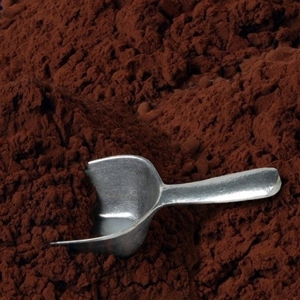Researchers looking into the effects of chocolate consumption at different times of the day have come up with some unexpected but welcome findings. But will the experimental indications translate into real-world benefits? More research is needed to confirm the results…
 Eating chocolate in the morning could offer mega-benefits in
Eating chocolate in the morning could offer mega-benefits in
the fight against a number of major health challenges…
When researchers at Brigham and Women’s Hospital decided to investigate the effects of chocolate consumption at different times of the day, they didn’t expect to find positive results – genuine benefits. But their simple, observational experiment clearly showed important outcomes.
What they did
The researchers collaborated with colleagues at the University of Murcia in Spain in a randomized, controlled, cross-over trial of 19 postmenopausal women who consumed either 100 g / 3.5 oz. of chocolate in the morning (within one hour after waking time) or at night (within one hour before bedtime). They compared weight gain and a number of other measures to those of women who ate no chocolate.
What they found
An abstract of the study report reveals that, among the women studied:
- Morning or nighttime chocolate intake did not lead to weight gain;
- Eating chocolate in the morning or in the evening can influence hunger and appetite, microbiota composition, sleep and more;
- A high intake of chocolate during the morning hours could help to burn fat and reduce blood glucose levels.
- Evening/night chocolate altered next-morning resting and exercise metabolism.
“Our volunteers did not gain weight despite increasing caloric intake. Our results show that chocolate reduced ad libitum energy intake, consistent with the observed reduction in hunger, appetite and the desire for sweets shown in previous studies,” says D. Marta Garaulet of Brigham and Women’s.
The takeaway
“Our volunteers did not gain weight despite increasing caloric intake. Our results show that chocolate reduced ad libitum energy intake, consistent with the observed reduction in hunger, appetite and the desire for sweets shown in previous studies,” Garaulet observes.
And those results were directly related to blood sugar levels and microbiome performance.
My take
It’s no surprise that such an experiment – looking at the results of eating chocolate – have not been performed before now. After all, chocolate has has been vilified as unhealthy and fattening (mainly because of added sugar) for decades. But recent studies, within the past few years, have shown that chocolate (cocoa) offers benefits no one suspected before scientists started exploring the functions of the gut microbiome and making a concerted effort to understand inflammation. Chocolate’s time has come.
It’s the phenolic compounds in cocoa that bestow the beneficial antioxidant effects that researchers say can help reduce systemic inflammation and intestinal imbalances which can lead in turn to a whole list of body-wide conditions from heart disease to diabetes to cancer.
So, its not just about losing weight, or even avoiding weight gain. The potential benefits for type 2 diabetes sufferers are palpable.
But let’s not forget that obesity, among both kids and adults of all ages, is at epidemic levels around the world today. The UK and Australia have particularly acute obesity challenges, with the highest percentages of overweight and obese citizens among the western developed nations. If simply eating chocolate at the right time of day could help fight the obesity curse, the ‘cure’ could actually be a pleasure.
I look forward to seeing the results of further research into the potential of the bio-mechanisms discovered by the team at Brigham and Women’s. If we could some up with a cheap, reliable treatment for obesity – with benefits reaching out to fight heart disease, diabetes and cancer, we could save billions – maybe trillions of dollars a year, the world over, in health care costs. Imagine what that money – or even a small fraction of it – could be repurposed for!
~ Maggie J.

